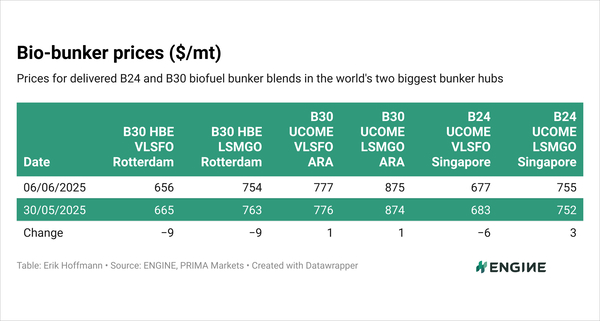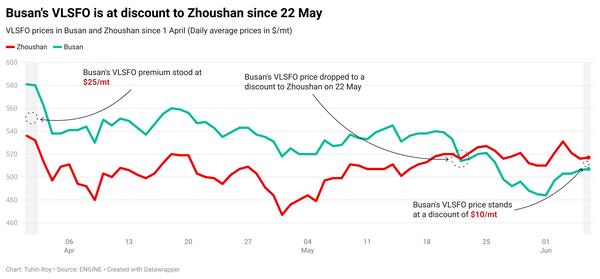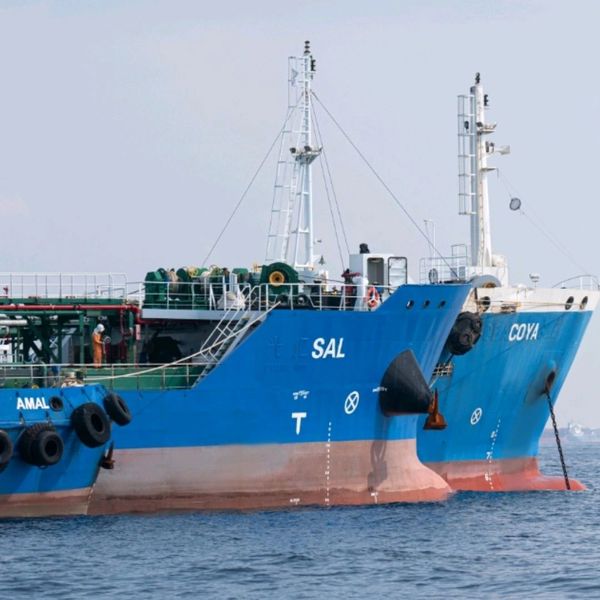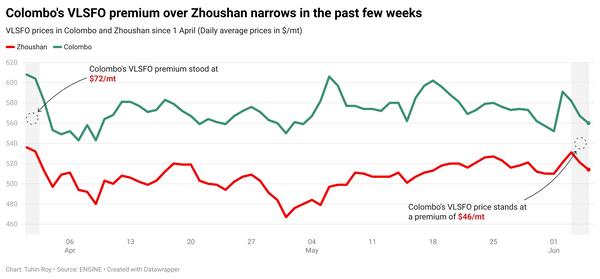Biofuel Bunker Snapshot: Greater HBE rebates weigh on Rotterdam bio-bunker prices
HBE-rebated biofuel prices drop
POMEME and UCOME barge prices gain in the ARA
Chinese UCOME cargo price down
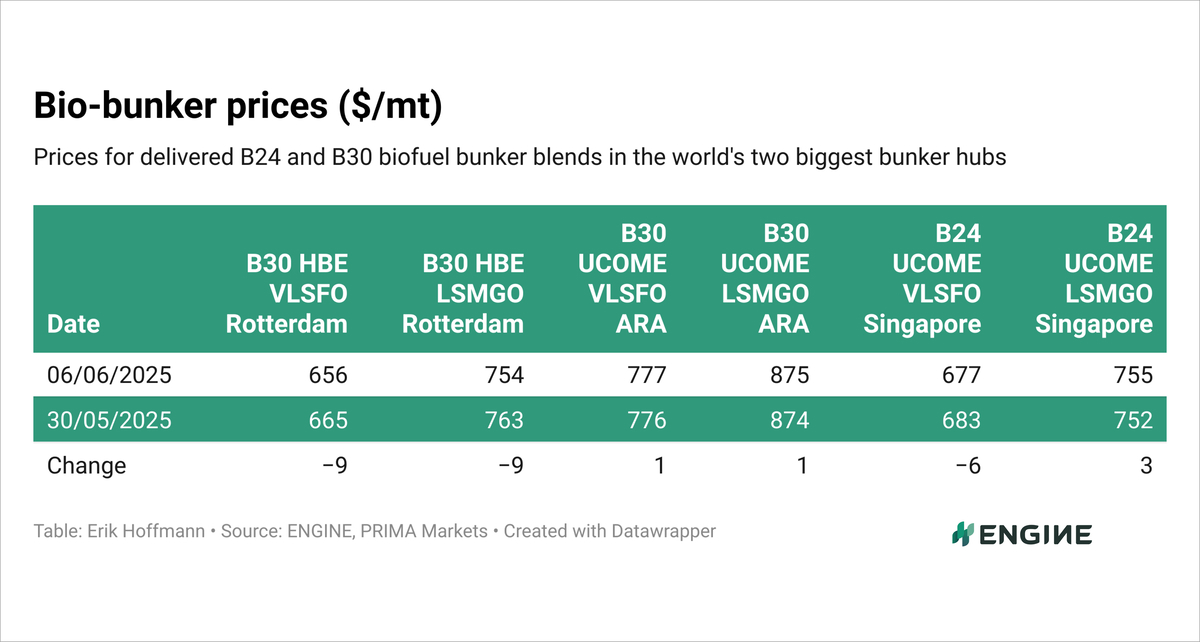
Rotterdam
HBE-rebated B30-VLSFO and B30-LSMGO prices are down by $9/mt on the week in Rotterdam.
A $10/mt increase in Prima Markets’ HBE-rebate has led the decline. The HBE rebate now stands at $125/mt for B30s supplied in the Netherlands.
Prices for pure VLSFO and LSMGO have edged $1/mt lower and added to the B30 declines, while a $5/mt gain for Prima’s POMEME CIF ARA barge price has cushioned the fall.
B30-VLSFO and B30-LSMGO UCOME grades don’t qualify for HBE rebates and ticked up by $1/mt on the week, drawing support from a $5/mt rise in UCOME FOB ARA barges.
HBE-rebated B100 has moved up by $42/mt to $1,114/mt. Prima estimates that the HBE rebate for B100 is $418/mt now, up by $32/mt on the week.
Singapore
Singapore’s B24-VLSFO UCOME has come off by $6/mt over the past week. The benchmark has been driven lower by a $1/mt drop in pure VLSFO, and a $10/mt decline in Prima’s UCOME cargo price for FOB China - a key exporter to Singapore’s bunker market.
A $1.75/mt increase in the relevant freight rate for a UCOME cargo between China and Singapore has countered some of the decline.
Other bio-bunker news
UAE-based bunker supplier Oil Marketing and Trading International (OMTI) has supplied a first B30 stem in Fujairah. This follows an IMO draft amendment allowing bunker tankers to carry blends with up to 30% biofuel, up from 25% previously.
In the US, renewable diesel and biodiesel production “fell sharply” in the first quarter of this year, the US Energy Information Administration (EIA) said. The decline was largely due to uncertainty around federal biofuel tax credits and negative profit margins.
Shanghai’s Maritime Safety Administration (MSA) is working to set up an International Shipping Sustainable Fuel Certification System. The greenhouse gas (GHG) intensities of fuels used by ships will be determined by lifecycle assessments. The work is done with participation from Chinese oil company Sinopec, shipping major COSCO and the Shanghai Maritime University.
By Erik Hoffmann
Please get in touch with comments or additional info to news@engine.online

Contact our Experts
With 50+ traders in 12 offices around the world, our team is available 24/7 to support you in your energy procurement needs.

